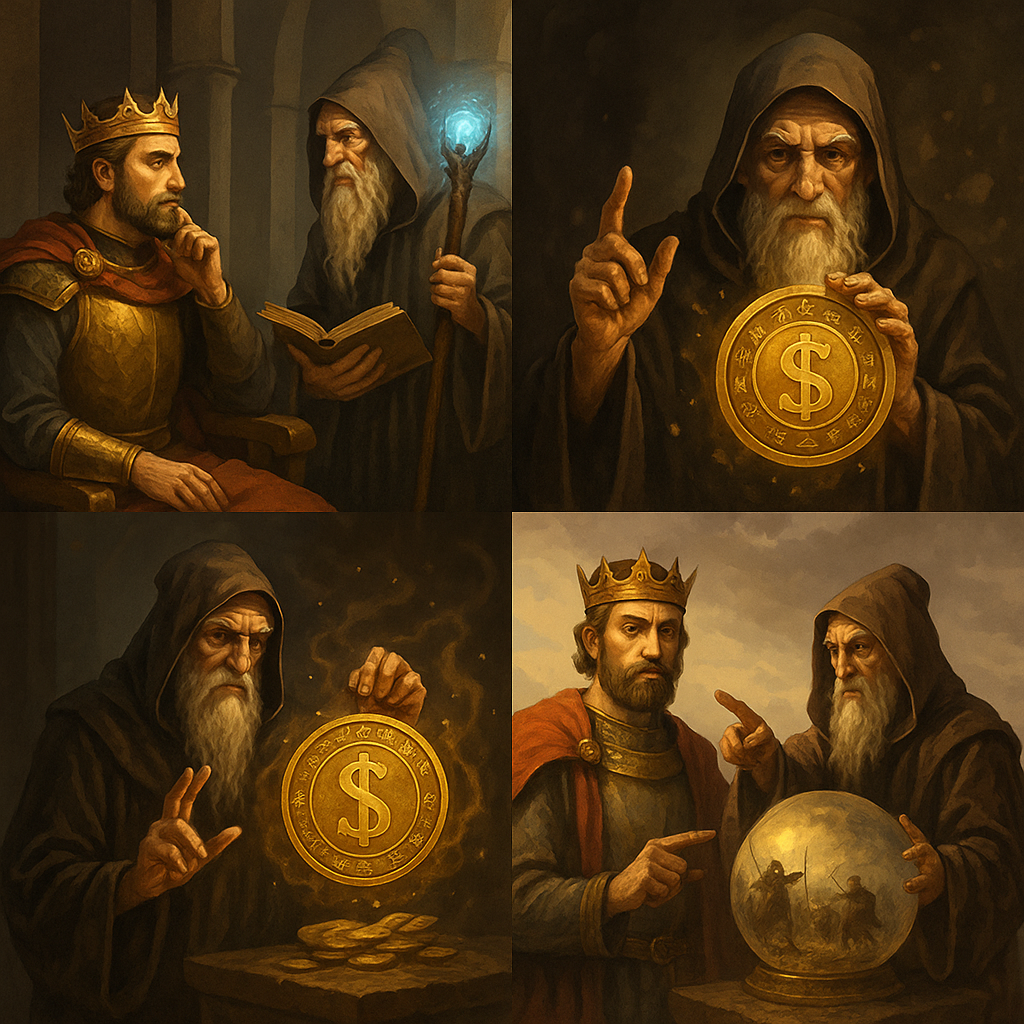In ancient times, kings turned to supernatural forces and ancient sorcerers to solidify their power, conquer lands, and protect their wealth. This article offers a historical and analytical view of the role of sorcerers in strategic decision-making, war predictions, protection against enemies, and the accumulation of royal riches.
Chapter One: Who Were the Ancient Sorcerers?
Definition of Sorcerer in Ancient Cultures:
Ancient sorcerers were individuals possessing knowledge beyond the science of their era. They were skilled in astronomy, traditional medicine, prophecy, talisman-making, and spirit summoning. In many cultures, sorcerers were respected — even worshiped.
Sorcerers in Royal Courts:
Advisory Roles of Sorcerers:
Many ancient kings made key political and military decisions based on sorcerers’ prophecies. For instance, in Ancient Egypt, pharaohs employed sorcerers to predict major events like famine or uprisings.
Court Security and Sorcerers:
Talismans were crafted to protect the king, repel the evil eye of enemies, and strengthen royal willpower. These were often sewn into royal garments or buried within the palace grounds.
Chapter Three: Magical Rituals for Victory in War
Magic in Military Strategy:
Before battle, magical rituals were performed to weaken the enemy and boost troop morale. Sorcerers in the army used special tools like bones, staffs, salt, or blood in ceremonies believed to ensure victory.
Predicting War Outcomes:
Kings consulted sorcerers before wars to forecast the results of battle. These predictions significantly influenced political decisions.
Chapter Four: Sorcerers and the Increase of Royal Wealth
Magic for Attracting Wealth:
Some sorcerers specialized in wealth spells. Using specific symbols, they conducted rituals to attract gold, possessions, and treasure. It was even believed they could reveal hidden mines.
Magic in Taxation and Treasury:
In some empires, sorcerers advised kings on how to keep the treasury full and prevent theft or treachery by treasury officials.
Chapter Five: Historical Examples of Influential Sorcerers
Sorcerers of Ancient Egypt:
In Egypt, sorcery was part of the official religion. Kings relied on temple sorcerers to connect with the gods.
Magic in Ancient Iran:
In ancient Persia, the Magis fulfilled the role of sorcerers. Prominent in Zoroastrianism, they were advisors to kings like Darius and Xerxes.
Magic in Ancient China:
Chinese emperors sought the help of sorcerers to predict rain, set agricultural calendars, and prevent “heavenly rebellions.”
Chapter Six: The Relationship Between Sorcerers and Royal Legitimacy
Sorcerers often portrayed a king’s power as divine. Through special rituals, they declared the king as the chosen one of the heavens. This helped monarchs bolster their legitimacy among people and nobles.
Chapter Seven: The Decline of Sorcerers’ Influence
With the rise of Abrahamic religions, sorcerers gradually lost power. Christianity and Islam viewed magic as demonic, and sorcerers were persecuted. However, their historical influence on political power remains undeniable.
Ancient sorcerers were more than simple fortune-tellers or magicians. They were advisors, spiritual guardians, and at times, key architects of royal success and prosperity. While many of these beliefs have faded, history shows that without sorcerers, the trajectory of many kings’ reigns might have taken a very different path.


